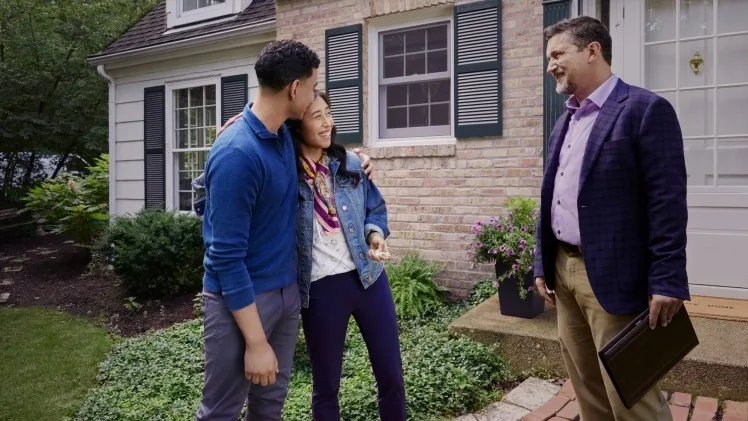Buying your first home is an exciting milestone, but navigating the world of mortgages and financing can be overwhelming. Fortunately, there are various loan programs and assistance options available specifically designed to help first-time homebuyers achieve their homeownership dreams. If you’re a first-time homebuyer in Florida, this comprehensive guide will provide you with valuable insights into the loan programs, requirements, and resources available to make your homeownership journey a reality.
Understanding First-Time Home Buyer Loans
First-time home buyer loans are specifically tailored to assist individuals who have never owned a home or haven’t owned one within a specific time frame (typically three years). These loan programs aim to make homeownership more accessible by providing affordable financing options, down payment assistance, and favorable terms for qualifying borrowers. Whether you’re a recent graduate, a young professional, or someone transitioning from renting to homeownership, these programs can be instrumental in helping you achieve your goal of owning a home.
Benefits of First-Time Home Buyer Loans
First-time home buyer loans offer several benefits that make homeownership more attainable for individuals entering the housing market:
Down Payment Assistance
One of the significant barriers to homeownership is saving for a down payment. First-time home buyer loan programs often provide down payment assistance to help borrowers cover this upfront cost. These assistance programs can take various forms, such as grants, low-interest loans, or forgivable loans, and can significantly reduce the amount of money needed to secure a home loan.
Favorable Loan Terms
First-time home buyer loans typically offer favorable loan terms, including lower interest rates and more flexible credit requirements. Lenders understand that first-time buyers may have limited credit history or a shorter employment history, and these loan programs are designed to accommodate such situations, making it easier to qualify for a mortgage.
Accessible Financing Options
First-time home buyer loan programs offer a range of financing options to meet the diverse needs of borrowers. These options may include conventional loans, FHA loans, USDA loans, or VA loans, each with its own eligibility criteria and benefits. Having multiple options allows borrowers to choose the loan program that aligns best with their financial situation and long-term goals.
Education and Counseling
Many first-time home buyer loan programs provide educational resources and counseling to help borrowers navigate the homebuying process. These resources may include homebuyer education courses, financial literacy programs, and one-on-one counseling sessions. The aim is to equip first-time buyers with the knowledge and skills necessary to make informed decisions and navigate the complexities of homeownership successfully.
Potential Tax Benefits
Owning a home can offer potential tax advantages, such as deductions for mortgage interest and property taxes. First-time home buyer loan programs often inform borrowers about these potential benefits and guide them on how to take advantage of them.
First-Time Home Buyer Loan Programs in Florida
Florida offers various first-time home buyer loan programs and assistance options. Here are some of the most common programs available:
Florida First Mortgage Program
The Florida First Mortgage Program, administered by the Florida Housing Finance Corporation (FHFC), offers affordable 30-year fixed-rate mortgages to first-time homebuyers. The program provides low-interest-rate loans, down payment assistance, and closing cost assistance to eligible borrowers. The assistance can be in the form of a second mortgage or a grant, reducing the upfront costs and making homeownership more affordable.
Federal Housing Administration (FHA) Loans
FHA loans are backed by the Federal Housing Administration and are popular among first-time homebuyers. These loans require a lower down payment (typically 3.5% of the purchase price) and have more flexible credit requirements compared to conventional loans. FHA loans also allow for higher debt-to-income ratios, making it easier for borrowers to qualify.
U.S. Department of Agriculture (USDA) Loans
USDA loans are designed for low-to-moderate-income borrowers purchasing homes in eligible rural areas. These loans offer 100% financing, meaning no down payment is required, and often have lower interest rates compared to conventional mortgages. Borrowers must meet income and property eligibility requirements to qualify for a USDA loan.
Veterans Affairs (VA) Loans
VA loans are available to eligible active-duty military members, veterans, and their surviving spouses. These loans offer competitive interest rates, flexible credit requirements, and no down payment requirement. VA loans are backed by the U.S. Department of Veterans Affairs and provide a unique opportunity for military personnel and veterans to achieve homeownership.
Local Down Payment Assistance Programs
In addition to state and federal programs, many local government agencies, municipalities, and non-profit organizations in Florida offer down payment assistance programs specifically tailored to first-time homebuyers. These programs provide grants or loans to help cover the upfront costs of purchasing a home.
Qualifying for First-Time Home Buyer Loans
While specific eligibility criteria vary depending on the loan program, here are some general requirements for first time home buyer loan in Florida:
First-Time Home Buyer Status
To qualify for most first-time home buyer loan programs, you must meet the definition of a first-time homebuyer, which typically means not owning a home in the past three years. However, some programs may have different requirements, so it’s essential to review the specific guidelines of each program.
Income Limits
Many first-time home buyer loan programs have income limits to ensure assistance is targeted to those who need it most. Borrowers must meet these income limits based on their household size and location. Income limits can vary by program, so it’s crucial to review the guidelines of the specific loan program you’re considering.
Credit Requirements
While first-time home buyer loan programs may have more flexible credit requirements than conventional loans, borrowers still need to demonstrate a satisfactory credit history and meet minimum credit score criteria. Lenders will review your credit report and consider factors such as payment history, credit utilization, and any outstanding debts.
Homeownership Education
Some first-time home buyer loan programs require completion of a homeownership education course. These courses provide valuable information about the homebuying process, financial management, and responsible homeownership. Completion of the course is often a requirement to qualify for the loan program.
The Homebuying Process for First-Time Buyers
Once you’ve identified a suitable first-time home buyer loan program and determined your eligibility, you can start the exciting process of purchasing your first home. Here are the general steps involved:
- Get Preapproved: Before starting your home search, it’s advisable to get preapproved for a mortgage. This involves submitting a loan application to a lender who will review your financial information and provide a preapproval letter. Preapproval helps you understand your budget and demonstrates to sellers that you’re a serious buyer.
- Find a Realtor: Partnering with a real estate agent who specializes in working with first-time homebuyers can be invaluable. They will help you navigate the housing market, identify suitable properties, and negotiate the best terms for your purchase.
- Search for a Home: Begin your search for a home that meets your needs and budget. Consider factors such as location, size, amenities, and proximity to schools, work, and amenities. Take your time and visit multiple properties to find the right fit.
- Make an Offer: Once you find a home you love, work with your real estate agent to prepare and submit an offer to the seller. The offer will include details such as the purchase price, contingencies, and other terms. The seller can accept, reject, or negotiate the offer.
- Complete the Mortgage Process: If your offer is accepted, you’ll move forward with the mortgage process. Provide all necessary documentation to your lender, such as income verification, bank statements, and employment history. The lender will appraise the property and conduct a thorough review of your financials.
- Close the Deal: Once the lender approves your mortgage, you’ll proceed to the closing phase. At the closing, you’ll sign all the necessary paperwork, pay closing costs, and officially become a homeowner. Congratulations!
Utilizing Resources and Support
As a first-time homebuyer in Florida, it’s important to take advantage of the resources and support available to you. Here are some additional tips to help you on your homeownership journey:
Work with a Mortgage Broker or Loan Officer
Consider working with a mortgage broker or loan officer who specializes in first-time home buyer loans. These professionals have in-depth knowledge of the available loan programs, eligibility criteria, and can guide you through the application process.
Attend Homebuyer Education Programs
Take advantage of homebuyer education programs and counseling services offered by housing agencies, non-profit organizations, and lenders. These resources provide valuable information about the homebuying process, financial management, and homeownership responsibilities.
Research Down Payment Assistance Programs
Explore the down payment assistance programs available in your area. Local government agencies, municipalities, and non-profit organizations often offer grants or loans to help first-time buyers with their down payment and closing costs. Research these programs and determine if you meet their requirements.
Take Your Time and Do Your Homework
Purchasing a home is a significant financial decision, so take your time and do your homework. Research the housing market, understand the loan terms and conditions, and ask questions. Be thorough in your due diligence to ensure you’re making an informed decision.
Plan for Future Expenses
In addition to the upfront costs of homeownership, it’s essential to plan for ongoing expenses. These may include property taxes, homeowners insurance, maintenance costs, and utilities. Create a budget that accounts for these expenses to ensure you can comfortably afford homeownership.
Final Thoughts
Purchasing your first home in Florida is an exciting milestone, and with the right knowledge and resources, it can be a smooth and rewarding experience. First-time home buyer loan programs, down payment assistance options, and educational resources are available to help you navigate the process and make homeownership more accessible. By understanding the requirements, exploring the available loan programs, and working with professionals who specialize in assisting first-time buyers, you can confidently embark on your homeownership journey. Remember to take your time, research your options, and seek guidance when needed. With proper planning and support, you’ll soon be opening the door to your very own home in the Sunshine State.



